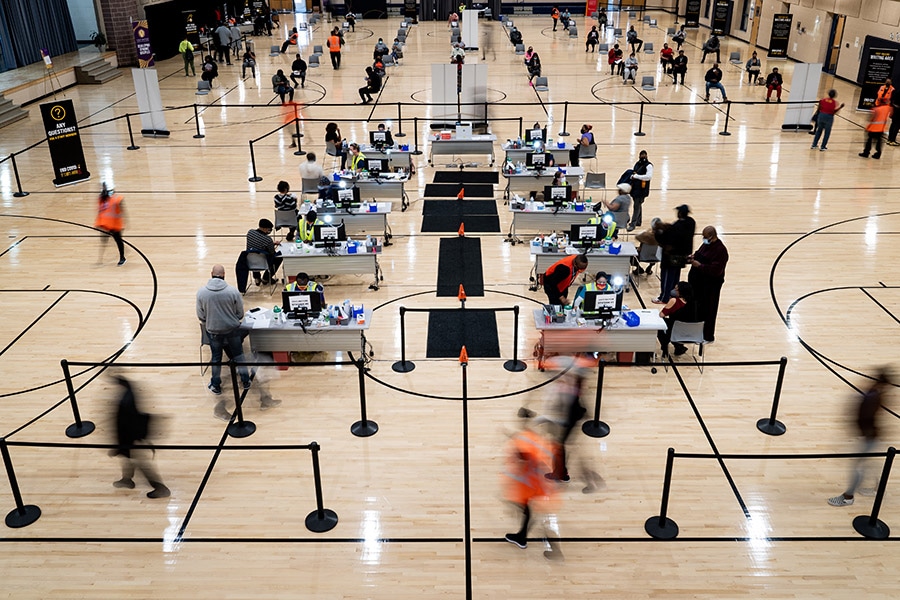
Inside the White House-Facebook rift over vaccine misinformation
Many Americans who refused to get vaccinated had cited false stories they read on Facebook, including theories that the shots could lead to infertility, stillborn babies and autism
 A coronavirus vaccination site in Upper Marlboro, Md., March 25, 2021. That month, Mark Zuckerberg, Facebook’s chief executive, called Ron Klain, the White House chief of staff, to discuss health misinformation. Image: Erin Schaff/The New York Times
A coronavirus vaccination site in Upper Marlboro, Md., March 25, 2021. That month, Mark Zuckerberg, Facebook’s chief executive, called Ron Klain, the White House chief of staff, to discuss health misinformation. Image: Erin Schaff/The New York Times
WASHINGTON — In March, Andy Slavitt, then a top pandemic adviser for President Joe Biden, called Nick Clegg, Facebook’s vice president for global affairs, and delivered an ominous warning.
For many weeks, Slavitt and other White House officials had been meeting with Facebook to urge the company to stop the spread of misinformation about the coronavirus vaccines. Many Americans who refused to get vaccinated had cited false stories they read on Facebook, including theories that the shots could lead to infertility, stillborn babies and autism. Slavitt and other officials felt that executives were deflecting blame and resisting requests for information.
“In eight weeks’ time,” Slavitt told Clegg, “Facebook will be the No. 1 story of the pandemic.”
Slavitt’s prediction was not far off. Roughly three months later, with cases from the delta variant surging, Biden said Facebook was “killing people” — a comment that put the social network in the center of the public discussion about the virus.
Biden’s comment, which he later walked back slightly, was the culmination of increasingly combative meetings with the company about the spread of misinformation. Interviews with administration officials, Facebook employees and other people with knowledge of the internal discussions revealed new details about who took part in the talks and the issues that fed the frustrations between the White House and the Silicon Valley titan.
©2019 New York Times News Service







